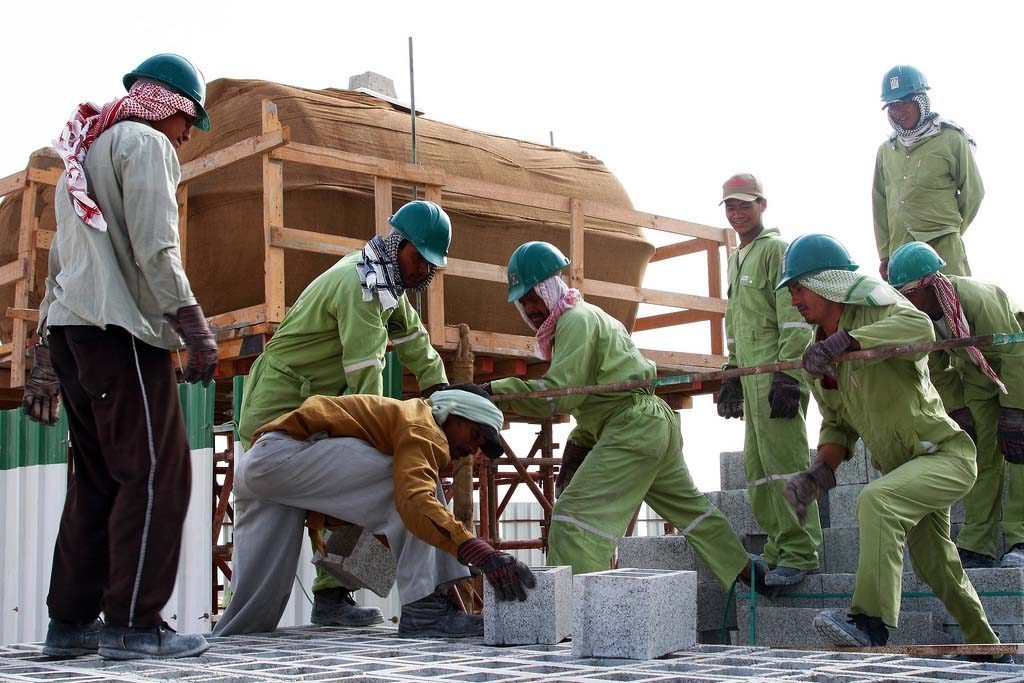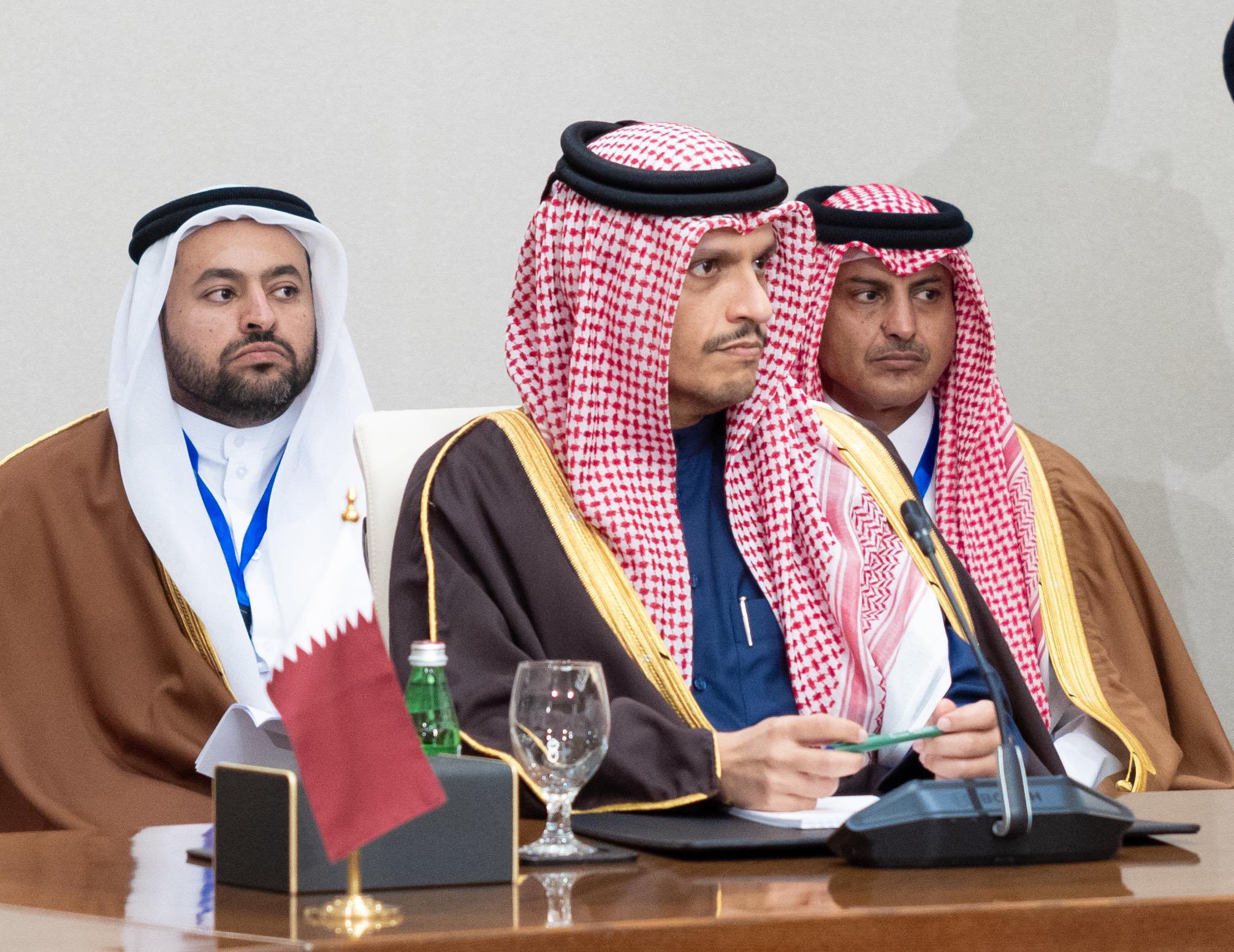
The organization tasked with readying Qatar for the 2022 World Cup has released an in-depth explanation about how it aims to prevent the abuse of migrants ahead of the football tournament.
That includes a fleshed-out set of minimum working and living standards for workers on its projects. The 50-page document dictates recruitment policies, payment terms, overtime provisions and accommodation requirements for contractors and subcontractors hired by the Supreme Committee for Delivery & Legacy, which is responsible for the construction of Qatar’s World Cup stadiums and training facilities.
The prescriptive document builds on the principles contained in a shorter workers’ charter released last year and closely mirrors the standards adopted by Qatar Foundation.
The Supreme Committee Workers’ Welfare Standards attempts to tackle many of the issues raised by human rights groups, such as illegal fees charged by recruiters in the laborers’ home countries and late or irregular payment of wages.
Amnesty International, which released an in-depth report into the abuse of migrant workers last fall, said it welcomed the standards as a positive first step, but noted the new rules would not cover the vast majority of Qatar’s laborers, including those working on infrastructure projects such as roads and railways.
Furthermore, both Amnesty and the International Trade Union Confederation (ITUC) said that the new rules don’t go far enough and the only way to truly protect workers’ rights is for the Qatar government to abolish the country’s sponsorship (kafala) system.
European Parliament
FIFA officials told the Associated Press that it “welcomes” the Supreme Committee’s “concrete steps.”
Supreme Committee members briefed FIFA officials on the new workers’ welfare standards Wednesday ahead of a European Parliament hearing tomorrow.
A subcommittee there is examining the issue of sports and human rights, with a particular focus on migrant workers in Qatar.
Representatives from the UN’s International Labour Organization (ILO), FIFA, football players union FIFPro, Amnesty and ITUC are all scheduled to speak alongside former French footballer Zahir Belounis, who was unable to leave Qatar for several months last year amid a contractual dispute with his sponsor.
Neither the Qatar government or the Supreme Committee were invited to the meeting, according to a spokesperson for the latter organization.
The European Parliament hearing will be the latest international spotlight highlighting the living and working conditions of low-income migrant laborers in Qatar. It follows investigations by advocacy groups such as Amnesty, Human Rights Watch, the United Nations and trade union BWI, as well as media organizations, notably the UK’s The Guardian.
These groups say there is an urgency to tighten up the provisions and enforcement of Qatar’s labor laws, given the massive influx of workers expected in the run-up to the 2022 World Cup.
By one estimate, approximately 1.5 million foreign workers will be needed to help the country prepare for the tournament.
Currently, only 38 people are working on a single World Cup stadium at Al Wakrah, although that number is expected to increase this year as construction on four additional facilities gets underway.
Overall, only a Supreme Committee spokesman estimates that only a fraction of Qatar’s migrant workforce – between 55,000 and 80,000 – would be directly involved in the construction of stadiums and training facilities and thus covered by the new workers’ standards.
However, officials hope that the document would nonetheless have a positive spillover effect, with its provisions being incorporated into contracts prepared by other organizations to build new highways, sewers and other infrastructure:
‘We have always believed that Qatar’s hosting of the FIFA World Cup would be a catalyst to accelerate positive initiatives already being undertaken by Qatar, which will leave a legacy of enhanced, sustainable and meaningful progress in regards to worker welfare across the country,” said Hassan Al Thawadi, Supreme Committee secretary general, in a statement.
Contents
Some of the main provisions of the workers’ standards include terms on:
- Recruitment: Contractors may only use registered recruiters, who must clearly advertise to candidates that they are not obliged to pay any fees;
- Employment contracts: Workers must sign an agreement in their home country that spells out the nature of their new job, hours of work, pay and other provisions. The contract that they receive in Qatar must contain terms that are no less favorable than that original offer. Human rights groups have previously documented cases of foreign workers arriving in Qatar and being asked to perform different tasks at a lower wage than what they agreed to in their home country;
- Wages: Workers must be paid in full at regular intervals not exceeding one month. Employees will also be paid 150 percent of their regular wage if they are forced to work on their day off;
- Accommodations: Workers’ housing must meet minimum safety requirements and dimensions. There are to be a maximum of four beds to a room, with bunk beds and bed sharing prohibited. Each worker is to be allocated six square metres of personal space and is to be allocated a locker to securely store personal possessions;
- Grievances: Workers will be able to call a confidential hotline in their native language to report concerns or non-compliance with these standards. ITUC was critical of this provision, saying noting there are no detail of who will answer the phones, or insights into how grievances will be handled;
- Standards or to make suggestions, anonymously and without fear of retaliation.
- A ban on imposing additional work or financial penalties as a form of discipline;
- Workers must be allowed to keep possession of their passports.
Enforcement
Human rights groups have previously noted that in many cases, abuse occurs due to lax enforcement of labor laws, caused in part from an insufficient number of inspectors and language barriers.
The Supreme Committee document requires contractors to establish policies to ensure they meet its standards and relies on overlapping evaluations and inspections for enforcement.
This starts with self-audits by the contractors themselves, random inspections by the Supreme Committee as well as audits by the Ministry of Labor and independent monitors – a system has leaves Amnesty officials wary.
“There are also serious questions relating to the implementation of these standards. In our experience enforcement is almost always the stumbling block. We need to know how the Supreme Committee will effectively address non-compliance by contractors and subcontractors,” said Amnesty researcher James Lynch in a statement.
A Supreme Committee spokesperson said detailed inspection plans and policies are still being developed and will be rolled out as the number of workers increases.
The Supreme Committee also noted that the Ministry of Labor has increased the number of trained inspectors by 30 percent over the last six months. Those officials conducted approximately 11,500 spot checks over the past three months, the committee added.
However, critics have noted that increasing the number of inspections don’t always led to positive results.
In its report last year, Amnesty noted that the country’s labor inspectors – which then numbered 150 – were forced to carry out multiple inspections a day, preventing them from conducting proper investigations.
Here’s the full charter:
Thoughts?







